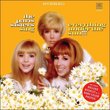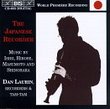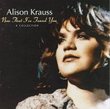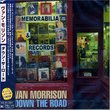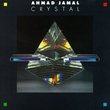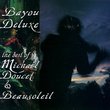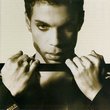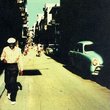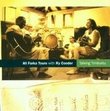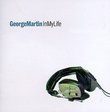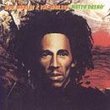| All Artists: Bill Frisell Title: Blues Dream Members Wishing: 2 Total Copies: 0 Label: Nonesuch Release Date: 1/30/2001 Genres: Jazz, Special Interest, Pop Styles: Avant Garde & Free Jazz, Jazz Fusion, Modern Postbebop, Bebop Number of Discs: 1 SwapaCD Credits: 1 UPCs: 075597961522, 075597990379 |
Search - Bill Frisell :: Blues Dream
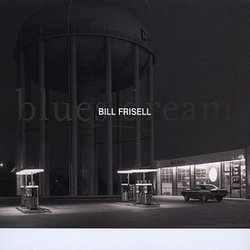 | Bill Frisell Blues Dream Genres: Jazz, Special Interest, Pop
For those who have been wondering where Mr. Bill's musical wanderings would lead him in the wake of his first solo CD, Ghost Town, Blues Dream provides the ambitious answer. Nearly all Frisell's fascinations are here: the ... more » |
Larger Image |
CD DetailsSynopsis
Amazon.com For those who have been wondering where Mr. Bill's musical wanderings would lead him in the wake of his first solo CD, Ghost Town, Blues Dream provides the ambitious answer. Nearly all Frisell's fascinations are here: the pastoralism of Have a Little Faith, a Nashville tinge, and the cinematic sounds of Quartet. There's also the electronic loop atmospheres of his ECM and early Elektra years and the alternating Ellingtonian and Salvation Army horns of his quintet period. All of this melded into 18 new compositions commissioned by the Walker Arts Center. A textural richness comes courtesy of Greg Leisz's various guitars backing Frisell's own guitar and a stunning integration of three horns: Curtis Fowlkes's trombone, Ron Miles's trumpet, and Billy Drewes's saxophones. As you listen to this string of broad-shouldered pieces, tributes to greats like Ron Carter, and strangely blues-inflected soundscapes, it's apparent that the solos of Ghost Town can operate as a sort of sketch or "cartoon" for this, the full painting; or a short that is then expanded into a feature. Frisell's career is taking on the aspect of a well-crafted movie or novel that explores different story lines before bringing them together for the finale (and this might be the prelude to the finale). --Michael Ross Similar CDs
Similarly Requested CDs
|
CD ReviewsAnother sonic journey Charles Calvert | Bellevue, WA United States | 08/18/2001 (5 out of 5 stars) "I'm not exactly sure why Bill Frisell is one of the best jazz musicians playing right now, but he is. He seems to understand that jazz isn't significant simply because it inherits the sounds that Duke, Miles, Satchmo or Coltrane produced. Their work was very important, of course, but jazz is also about working with popular music, the current zeitgeist, and letting good musicians take it someplace special. Unlike many jazz musicians, Frisell's music doesn't sound like it comes out of the popular music of the 40s and 50s; it sounds like it comes out of the popular music of the last twenty or thirty years. There is a heavy blues influence, of course, but there is also a country music influence, and a Hendrix influence, and maybe even something from the outside rock music made by musicians like Robert Fripp and Adrian Belew. The end result is a series of sonic dreams that sound like they belong to this century and to living generations. They are sometimes funky, often beautiful, occasionally even a bit corny, but almost always satisfying." Ghostly Americana Dirk Hugo | Cape Town, South Africa | 08/30/2001 (5 out of 5 stars) "Bill Frisell's consistent recorded output over the last two decades has established his reputation as one of the most atmospheric of guitarists. His more recent infatuation with musical Americana has come to full fruition on "Blues Dream", which deftly blurs whatever distinctions occur between what are conveniently termed Blues, Jazz and Country. The result is an extremely listenable album that ignores any notion of genre autonomy, rather seeking to establish a mood that incorporates all the unique musical aspects that American contemporary life has embraced over the last century. So Bluegrass rhythms sit alongside avant-garde horn motifs, which bounce off abrasive slide-guitar excursions - a curious hybrid held together by it's geographical roots." Another great one from Bill Kristopher Bell | Seattle, WA | 02/21/2001 (5 out of 5 stars) "I was a bit disappointed after my first listen of this cd, as none of the tunes really grabbed me as many of Bill's (can I call him by his first name?) compositions have in the past (Egg Radio, Blues for LA, Rag, and Tales from the Far Side, inparticular). Upon listening over and over again, however, I've come to realize that this is one of those albums that grows and grows and grows on each subsequent listen, and now I rank "Blues Dream" as one of Bill's best. As many reviewers in the past have pointed out, Frisell is one of those composers/arrangers/musicians who can blend styles with the deftest of hands, and "Blues Dream" serves as a terrific showcase for Frisell's method (now that I'm playing the role of critic, by the way, I'm referring to Bill Frisell as Frisell, as I'm attempting to portray myself as objective, which I'm not). Those unfamiliar with Frisell's work will find a rich soup of styles, as the album boils with country and bluegrass, blues, rock, and occasionally, a lick or two of straight jazz (though not too much). Those familiar with Frisell will find Frisell continuing in the vein of his mid- to late-nineties albums, but perhaps tempered by a more sullen, low-key feel than he's expressed in the past, which may prompt the question, "Does Frisell play the blues on this album?" I'd say, "not really," as only a few tunes are actually in blues form; however, as the title suggests, there is a dreamlike feel that justifies the title. As objects and places and people in one's dreams are never quite right, neither is the blues ever really properly addressed on this album--which is OK, because the album is not named "Straight Steel Blues from a Straight Steel Man," (I think that was Kenny Wayne Shepherd's last recording).In closing, I'd consider "Blues Dream" to be an essential Frisell recording, as well as a fine introduction to his overall body of music. All the elements are there--the loopy guitar lines, the unique and memorable compositions, and the tasteful arrangements. Mmm... finger-pluckin' good."
|

 Track Listings (18) - Disc #1
Track Listings (18) - Disc #1